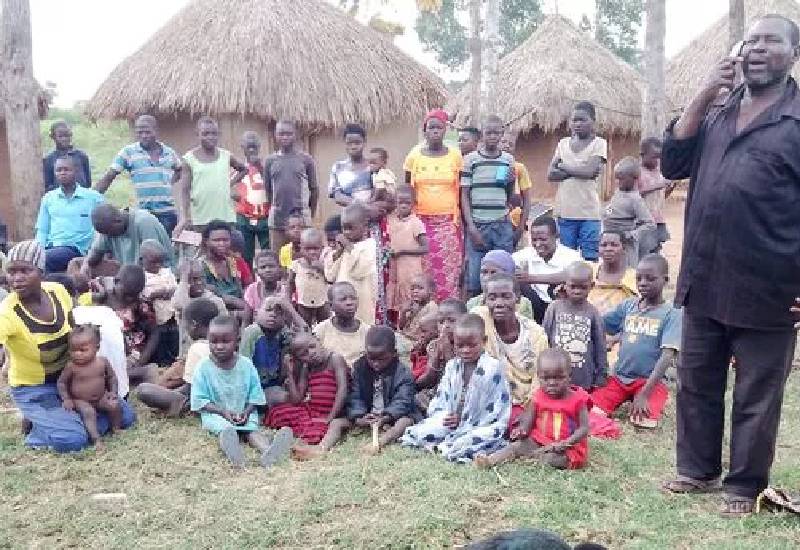There has been a growing debate on the relevance and importance of polygamous marriages in Ghanaian culture, particularly as it pertains to the benefits of such unions for men and society at large.
Polygamous marriages have been a long-standing practice in various Ghanaian societies, dating back to pre-colonial times. Traditional Ghanaian societies, such as the Akan, Ga-Adangbe, Ewe, and Dagomba, to name a few, have historically recognized and accepted polygamous marriages. These unions were often viewed as a symbol of wealth, power, and influence, and were primarily driven by economic and social factors.
Colonial rule and the introduction of Christianity marked a shift in societal attitudes towards polygamy, with monogamous marriages becoming the norm. This shift was further reinforced by the post-colonial Ghanaian state, which adopted Western legal systems that predominantly recognized and legitimized monogamous marriages. Despite these changes, however, polygamous marriages continue to persist in various Ghanaian societies, albeit in a more discreet manner.
Cultural Practices and Ancestral Beliefs
Central to the Ghanaian cultural perspective on polygamy is the belief in the extended family system, where multiple generations of family members live together and contribute to the overall well-being of the family unit. Polygamous marriages are often viewed as an extension of this system, as they allow for the pooling of resources, both financial and labor-based, for the betterment of the family.
In many Ghanaian societies, polygamy is also closely tied to the concept of lineage and inheritance. Men with multiple wives are often seen as solidifying their lineage and ensuring the continuity of their family name. Moreover, children born from polygamous unions are typically well-cared for, as they are able to benefit from the combined resources of multiple wives and their respective families.
Benefits of Polygamous Marriages
Proponents of polygamy argue that such unions provide several benefits to both the individual and society as a whole. These benefits include:
1. Economic Stability: Polygamous marriages allow for the pooling of resources, which can lead to increased economic stability for the family. With multiple wives contributing to the household income, families are better able to meet their financial obligations, invest in the education and well-being of their children, and save for the future.
2. Labor Division: The multiple wives in a polygamous union often take on specialized roles within the household, based on their skills and abilities. This division of labor can lead to increased efficiency and productivity, as well as a more harmonious household environment.
3. Emotional Support: Polygamous marriages can provide a strong support system for men, as they are able to rely on multiple wives for emotional and social support. This can be particularly beneficial in cases where a wife may be unable to fulfill certain emotional needs due to personal issues or health challenges.
4. Preservation of Cultural Heritage: By maintaining the practice of polygamy, Ghanaian societies are able to preserve their unique cultural heritage and practices, which may otherwise be lost in the face of globalization and modernity.
Tribes Practicing Polygamy in Ghana
Polygamy is still widely practiced in various Ghanaian tribes, including:
1. Akan: The Akan people, who include the Ashanti, Fante, and Akyem, have a rich history of polygamous marriages, which continue to be practiced today.
2. Ga-Adangbe: The Ga-Adangbe people, who inhabit the Greater Accra region, also have a strong tradition of polygamy, with many men maintaining multiple wives.
3. Ewe: The Ewe people, who are primarily located in the Volta region, have a cultural acceptance of polygamy, with men often taking on multiple wives.
4. Dagomba: The Dagomba people, who reside in the Northern region, are also known for their practice of polygamy, with men often having several wives and large families.
Potential Dangers and Challenges of Polygamous Marriages
Despite the potential benefits of polygamy, there are also several dangers and challenges associated with the practice, including:
1. Jealousy and Competition: The presence of multiple wives in a household can lead to feelings of jealousy and competition, which may result in domestic disputes and conflict.
2. Financial Burden: While polygamous marriages can potentially lead to increased economic stability, they can also result in significant financial burdens, as men are required to provide for multiple wives and their respective families.
3. Inheritance Disputes: Polygamous marriages can also lead to inheritance disputes, as children from different wives may feel entitled to a larger share of their father’s assets.
4. Health Risks: The practice of polygamy can also contribute to the spread of sexually transmitted infections and unwanted pregnancies, as men may engage in sexual relationships with multiple partners outside of their marriage.
Polygamous marriages have long been a part of Ghanaian culture and heritage, with roots dating back to pre-colonial times. While the practice has faced challenges and opposition from Western influences, it remains an integral aspect of various Ghanaian societies. By acknowledging and understanding the potential benefits and challenges of polygamy, Ghanaian policymakers, religious leaders, and communities can work towards finding a balance that respects cultural practices while also promoting the well-being of all individuals involved.
Godwin Owusu Frimpong




